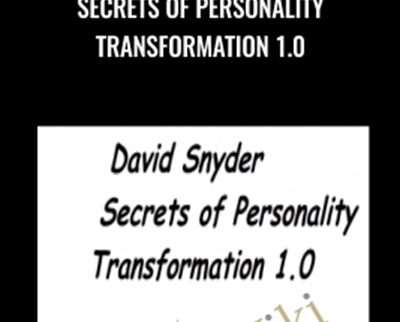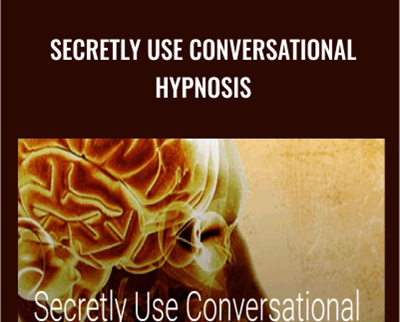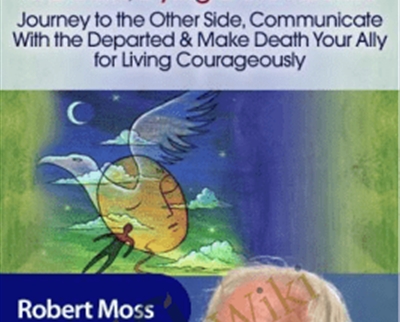Internal Family Systems Therapy: Step-by-Step Procedures for Healing Traumatic Wounds and Alleviating Anxiety, Depression, Trauma, Addiction and More – Alexia Rothman
Original price was: $199.99.$55.00Current price is: $55.00.
Internal Family Systems Therapy: Step-by-Step Procedures for Healing Traumatic Wounds and Alleviating Anxiety, Depression, Trauma, Addiction and More – Ale…
Salepage link: At HERE. Archive:
After decades of clinical innovation and recent scientific research, the empirically validated Internal Family Systems (IFS) model has been shown to be effective at improving clients’ general functioning and well-being. This effective model provides clinicians with procedures for helping clients with the most challenging mental health profiles to heal the wounded, burdened, and traumatized parts of their systems.
The IFS model provides a compassionate, respectful, non-pathologizing approach to understanding the organization and functioning of the human psyche.
The transformative IFS approach embraces and celebrates the natural multiplicity of the mind. Its assumption that every part of the system has good intention and valuable resources allows clinicians to approach even the most troubling of “symptoms” with compassion and respect. IFS offers therapists a powerful and effective set of tools for empowering clients with a wide range of clinical profiles to heal the wounded and burdened parts of their internal systems, resulting in:
- A way to enter clients’ inner ecology without the overemphasis on containment and stabilization
- Symptom reduction and improved functioning for clients
- Deep self-healing within even the most troubled clients
IFS is a powerful treatment modality. Once you experience it, you will want to incorporate it into your practice.
Through instruction, video demonstration, and experiential exercises, Alexia D. Rothman, Ph.D., Certified IFS therapist and college of Dr. Richard Schwartz (founder of IFS) will show you step-by-step how to apply the most effective, empirically validated IFS interventions to help your clients connect with and understand their conflicting parts to facilitate deep, lasting healing.
- Present the origins and development of the Internal Family Systems Model, including empirical support for the model and the current status of research using IFS to treat posttraumatic stress disorder.
- Provide an in-depth overview of IFS theory, basic principles, assumptions of the model and its treatment implications.
- Describe the three major components of the psyche as outlined by IFS (parts, burdens, and the Self) including the characteristics of and assumptions regarding each component as they relate to clinical practice.
- Discuss the goals of IFS therapy and case conceptualization through an IFS lens.
- Provide a grounding in IFS procedures and techniques that can be implemented immediately in clinical and personal work, including the steps for facilitating the development of Self-Part relationships.
- Summarize the steps of healing and unburdening wounded parts of the system in session.
Internal Family Systems (IFS)
- Comprehensive, compassionate, non-pathologizing treatment approach
- Paradigm-shifting perspective on “psychopathology”
- Easily integrated into other therapeutic modalities
- Teach clients to access inner wisdom and self-compassion to permanently heal traumatic wounds
Evolution of the Model
- Development of the IFS model by Richard C. Schwartz, Ph.D.
- IFS as an empirically validated treatment: Summary of research support
Composition of the Psyche
- Concept of multiplicity: “We are all multiple personalities.”
- Components of the psyche:
- Wounded, vulnerable, parts
- Protective parts: proactive and reactive
- Burdens: Negative beliefs about oneself
- The Self: compassionate inner leader and internal source of wisdom and healing energy
- Guide clients to access their own inner wisdom and healing potential
- IFS-specific techniques for in-the-moment emotion regulation, helpful even with panic, flashbacks, and dissociation
The IFS Model
- Assumptions of the model
- Goals of IFS therapy
- Flow of the IFS model over the course of treatment
- Flow of an individual IFS session
Case conceptualization in IFS
- Diversity and cultural sensitivity
- How IFS understands Personality Disorders, Dissociative Identity Disorder, and Addiction
IFS Step-by-Step
Step 1: Using Meditative Processes to Identify and Connect with a Target Part
- Differentiate the person from the symptom
- Access a state of compassion and curiosity essential for healing
- Establish a relationship with the target part
- Learn the history and benevolent intention behind the symptom
Step 2: Working with Protective Parts
- Facilitate internal attachment work
- Learn and address the fears/concerns of protective parts
- Establish a trusting and appreciative relationship with proactive and reactive protectors
- Gain permission to proceed to healing
Step 3: Healing the Traumatic Wound
- Develop a compassionate, connected relationship with the wounded part
- Witness the pain rather than re-experience it: Learn to be “with”, not “in”, to avoid re-traumatization
- Retrieve the wounded part from “trauma time”
- Release/unburden thoughts, feelings, and beliefs
- Integrate change into the system and use maintenance and troubleshooting strategies
Bringing IFS Concepts to Life
- Experiential exercise
- Video demonstration of IFS therapy with a real client
- Step-by-step commentary to solidify understanding of techniques illustrated in the video session
Here's an overview of the prominent keywords and a list of famous authors:
Business and Sales: Explore business strategies, sales skills, entrepreneurship, and brand-building from authors like Joe Wicks, Jillian Michaels, and Tony Horton.
Sports and Fitness: Enhance athleticism, improve health and fitness with guidance from experts like Shaun T, Kayla Itsines, and Yoga with Adriene.
Personal Development: Develop communication skills, time management, creative thinking, and enhance self-awareness from authors like Gretchen Rubin, Simon Sinek, and Marie Kondo.
Technology and Coding: Learn about artificial intelligence, data analytics, programming, and blockchain technology from thought leaders like Neil deGrasse Tyson, Amy Cuddy, and Malcolm Gladwell.
Lifestyle and Wellness: Discover courses on holistic health, yoga, and healthy living from authors like Elizabeth Gilbert, Bill Nye, and Tracy Anderson.
Art and Creativity: Explore the world of art, creativity, and painting with guidance from renowned artists like Bob Ross and others.
All the courses on WSOlib are led by top authors and experts in their respective fields. Rest assured that the knowledge and skills you acquire are reliable and highly applicable.
Specification: Internal Family Systems Therapy: Step-by-Step Procedures for Healing Traumatic Wounds and Alleviating Anxiety, Depression, Trauma, Addiction and More – Alexia Rothman
|
User Reviews
Only logged in customers who have purchased this product may leave a review.

Original price was: $199.99.$55.00Current price is: $55.00.












There are no reviews yet.